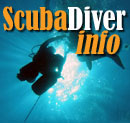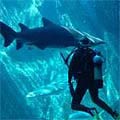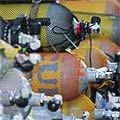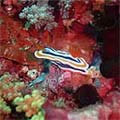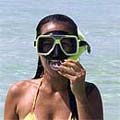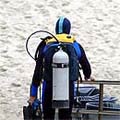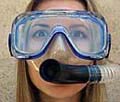« "Crocodile Hunter" Steve Irwin killed in freak diving accident | Main | High Altitude Diving Certified! »
September 09, 2006
Diving Lake Tahoe!
Well, finally a trip to a real dive site! I am about to depart for Lake Tahoe where I'll be diving with my instructor, Chuck Odell, and one of his students. And I finally got my PADI C-Card! Now Tahoe is not just any dive site, but a high altitude dive site. We're talking 6,230 feet above sea level, and before you get there you have to cross over the Sierra Nevadas summit at 7,300 feet or so. Which, of course, means that this is high altitude diving.
The standard dive tables and rules apply to diving of up to 1,000 feet above sea level. Anything higher than that and different rules apply and different tables. That's because the air pressure is lower at altitude, which means several things. First, if you drive up to a high altitude dive site, you already carry residual nitrogen just from ascending to the higher altitude. In PADI speak, you advance two pressure groups for each 1,000 feet of altitude, and you, as always, round up to the next higher tound number. So the 7,200 foot summit is terated as 8,000 feet, which means you're a "P" diver once you get up there, and even your first dive will be treated as a repetitive dive.
I met with Chuck yesterday afternoon and we went over all the issues of high altitude diving. Not only do you need to treat the first dive as a repetitive dive, but you also need to compensate diving depth due to the lower air pressure. There are "altitude-adjusted" tables. On there you find that a 40 foot dive is to be treated like a 52 foot dive at 6,200 feet (rounded to 7,000), and a 50 foot dive like 65 feet.
It should be interesting! I loaded all my gear last night and hope I didn't forget anything.
Posted by conradb212 at September 9, 2006 06:15 AM
